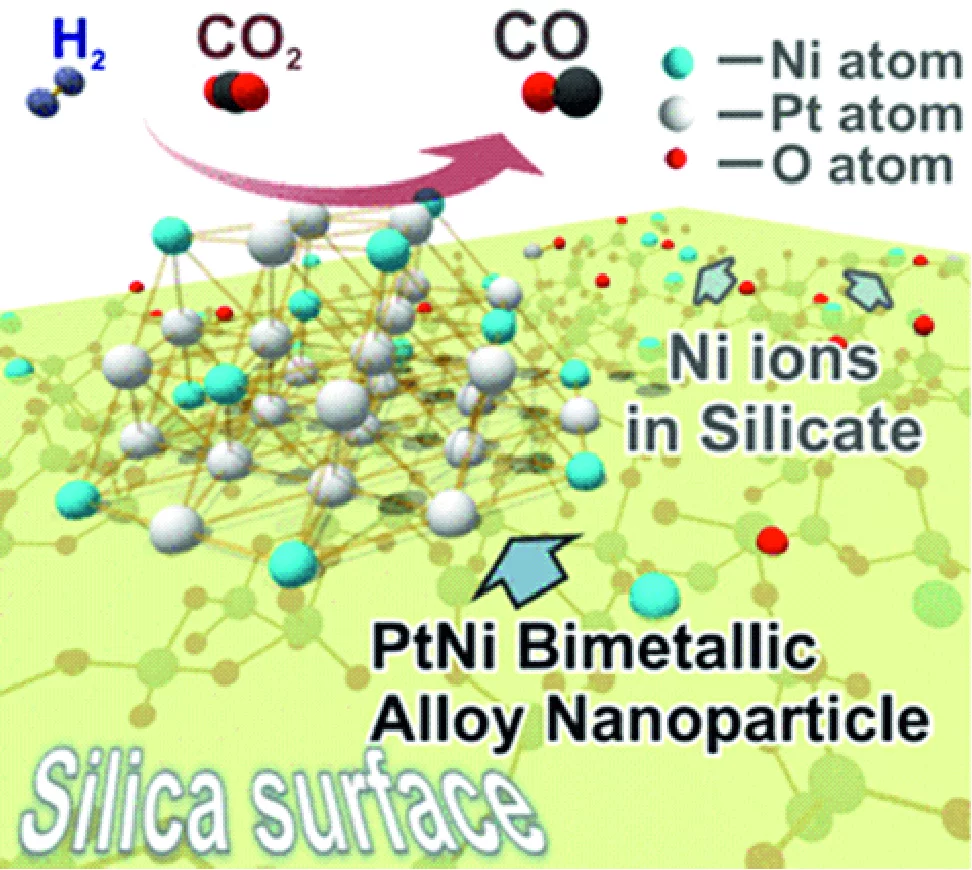Dynamic Structural Changes of Active Sites in Pt–Ni Bimetallic Catalysts Revealed by a Multimodal Approach
Supported alloy nanoparticle catalysts have been widely used for heterogeneous catalysis, with applications in reforming processes, selective hydrogenation/oxidation, and other important reactions in both the petroleum and fine chemical industries. Understanding the atomic structures adopted by supported metal nanoparticles in the environments of their use (‘in operando’) provide a key to understanding their catalytic properties. Based on an advanced multimodal analytical approach - including in situ X-ray Absorption Spectroscopy (XAS), Diffuse Reflectance Infrared Fourier Transform Spectroscopy (DRIFTS) and ex-situ aberration corrected Scanning Transmission Electron Microscopy (STEM) - complex reactions occurring between the bimetallic nanoclusters and the support are documented under operando conditions. Bimetallic nanoparticles possessing an intermetallic structure that are conjoined with Ni-rich, metal-silicate substrate species are identified. The intermetallic structure formed by these ∼1 nm sized Pt-Ni clusters, once driven to a specific composition in their active state, provides a heretofore unrecognized heterometallic structure that sustains the exceptionally high activity and selectivity seen in reverse Water Gas Shift reaction.
Read the full story
Identifying Dynamic Structural Changes of Active Sites in Pt–Ni Bimetallic Catalysts Using Multimodal ApproachesD. Liu, Y. Li, M. Kottwitz, B. Yan, S. Yao, A. Gamalski, D. Grolimund, O. V. Safonova, M. Nachtegaal, J. G. Chen, E. A. Stach, R. G. Nuzzo, A. I. Frenkel
ACS Catalysis 8, pages 4120-4120, (2018), published online: 02 April 2018
DOI: 10.1021/acscatal.8b00706
Contact
Dr Daniel GrolimundLaboratory for Synchrotron Radiation and Femtochemistry
Swiss Light Source, Paul Scherrer Intitute
5232 Villigen-PSI, Switzerland
Prof Anatoly I. Frenkel
Department of Materials Science and Chemical Engineering
Stony Brook University
Stony Brook, NY 11794, USA
